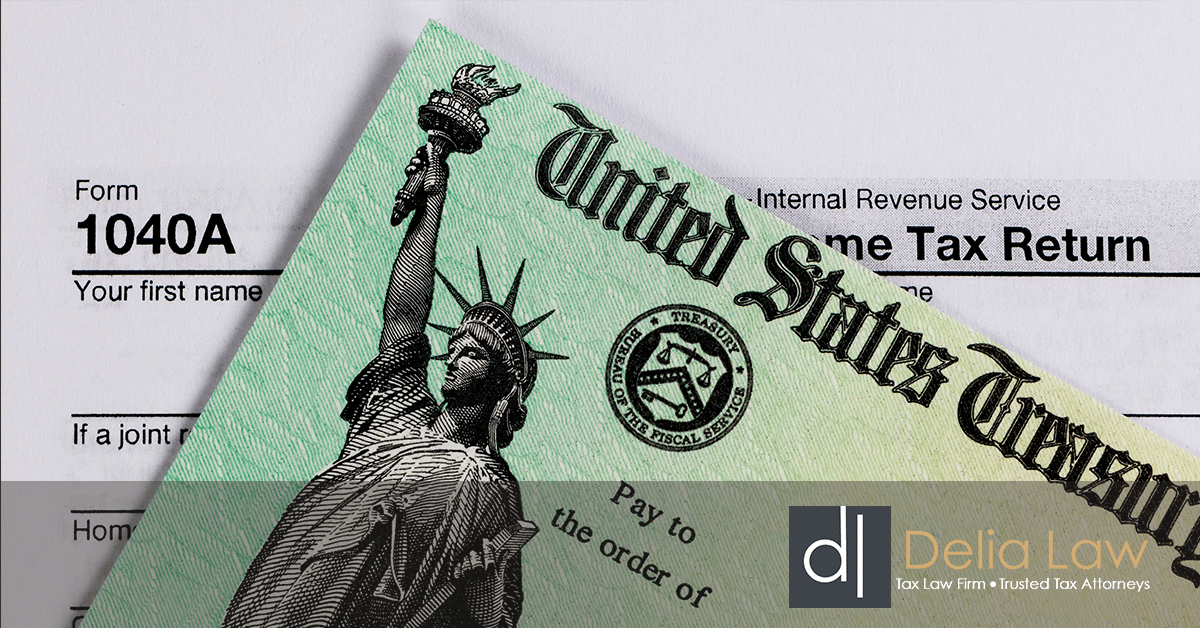When you are facing your wages being garnished by the IRS, it can put you in a tough financial spot. Taxpayers should work to end garnishment as quickly as possible. Earning less than your full paycheck can be frustrating or even financially devastating. It’s important to know how to immediately address this IRS collection tactic.
Wage garnishment may occur when you owe back taxes to the IRS, but it is not the first step that the agency will take to collect payments. The IRS is likely to use wage garnishment as one of the last options to collect an unpaid debt. By addressing the tax debt sooner, and working with the IRS on other payment options or settlements, taxpayers can avoid the consequences of garnishment.
What Is Wage Garnishment?
Wage garnishment is when the IRS requires your employer to hand over a portion of your wages from your paycheck. This portion is sent directly to the IRS to begin paying back your tax debt. Wage garnishment can also be done by other creditors, but most creditors must go through the court for approval to garnish your wages. The IRS does not need to do this. Wage garnishment continues until your tax debt is repaid or you reach another resolution with the IRS.
The Wage Garnishment Notice Process
The IRS must usually follow a specific procedure before wage garnishment can occur. At any point in this process, you can begin negotiations with the IRS or pay back your tax debt, preventing further notice or action. The process leading to wage garnishment includes:
- Liability Assessment: The IRS first reviews your unpaid taxes and assesses the value of your tax debt.
- Initial Notices: There will be several notices stating that you owe taxes and must pay them. These notices and bills will inform you of the liability amount, the date when you must pay it, and the penalties and interest that are accruing.
- Final Notice of Intent to Levy: The final notice that the IRS will send you is the Notice of Intent to Levy, which is the stated intention to levy your wages or bank account. You will also receive a Notice of Your Right to a Hearing, which informs you of your ability to challenge the garnishment. From there, the IRS will wait 30 days before taking action. It is crucial that you act during this time, such as through negotiation, paying your debt, appealing, or taking other measures. It is best to call a tax attorney at this time.
- Wage Garnishment: If 30 days have passed and you have not contacted the IRS or taken any other action, the IRS will get in contact with your employer and order them to begin wage garnishment. Garnishment will continue until other arrangements are made or until your debt is paid, which could take years.
There are several points throughout the process where you can and should take action, and a tax attorney can help you. The IRS is willing to work with taxpayers to find a favorable solution for both parties.
How to Stop Wage Garnishment
As stated above, you should receive several notices regarding your tax liability before the IRS begins wage garnishment. At any point in this process, there are actions you should take to avoid or limit the effect that wage garnishment will have on you. Some of your options to end wage garnishment include:
- Pay in Full: The most immediate way to end wage garnishment is to pay back your tax debt in full. It is a straightforward option, but it is not financially possible for every taxpayer.
- Installment Agreement: You can negotiate a payment plan that includes the removal of the wage garnishment. A payment plan, or installment agreement, occurs when you pay back your debt in full over a period of time, instead of all at once. You must prove to the IRS that you are willing to negotiate and pay your debt but are unable to pay in full.
- Currently Not Collectible: Marking the tax debt as Currently Not Collectible (CNC) gives you temporary relief from IRS collection actions, including wage garnishment. This means that the wage garnishment creates an economic hardship according to the IRS’s definition. This does not remove the tax debt, but it gives you time to improve your financial situation. This status is generally good for one year.
- Offer in Compromise: If paying your debt in full would put you in financial hardship and prevent you from meeting your basic needs, you may qualify for an Offer in Compromise. This is when you negotiate with the IRS to settle your entire tax debt for a lower amount. You must apply for an Offer in Compromise, but approval chances are low. That is why it is important to hire a tax attorney to position you properly. Additionally, while the application is submitted and awaiting approval or rejection, the IRS will suspend collection activities, including wage garnishment.
- Appealing: You have the right to file an appeal for wage garnishment if you believe that the IRS made an error while assessing your tax liability. An error could be one of the following:
- You do not owe the stated tax amount.
- The garnishment was issued despite the collection period expiring.
- Your wages were garnished without the proper process.
If you received a Final Notice of Intent to Levy, it is important to send an appeal before any collection action begins. An appeal can also be submitted to request that certain types of income are not garnished, like federal benefits.
Bankruptcy: This is one possible option for clearing tax debt, although be aware that not every type of bankruptcy will do this. Bankruptcy also offers short-term relief and has many other implications for your finances. It’s important to consider this option carefully.
The worst thing you can do when you receive a notice from the IRS is ignore it. Ignoring notices for a long enough time will likely lead to wage garnishment. It may be difficult to know what option is right for you to resolve your tax debt. Working with a tax attorney can help you make informed choices about your tax liability as they have a breadth of knowledge and experience with the tax laws.
An Attorney Can Help With Wage Garnishment
A skilled tax attorney knows what options are available, what you qualify for, and what is most beneficial. At Delia Law, we can help you find the ideal resolution to your tax debt, thus avoiding the potential consequences of wage garnishment. Our team can work with the IRS on your behalf, doing what we can to avoid long-term financial consequences on your life and resolving your liability. Contact our firm today.





